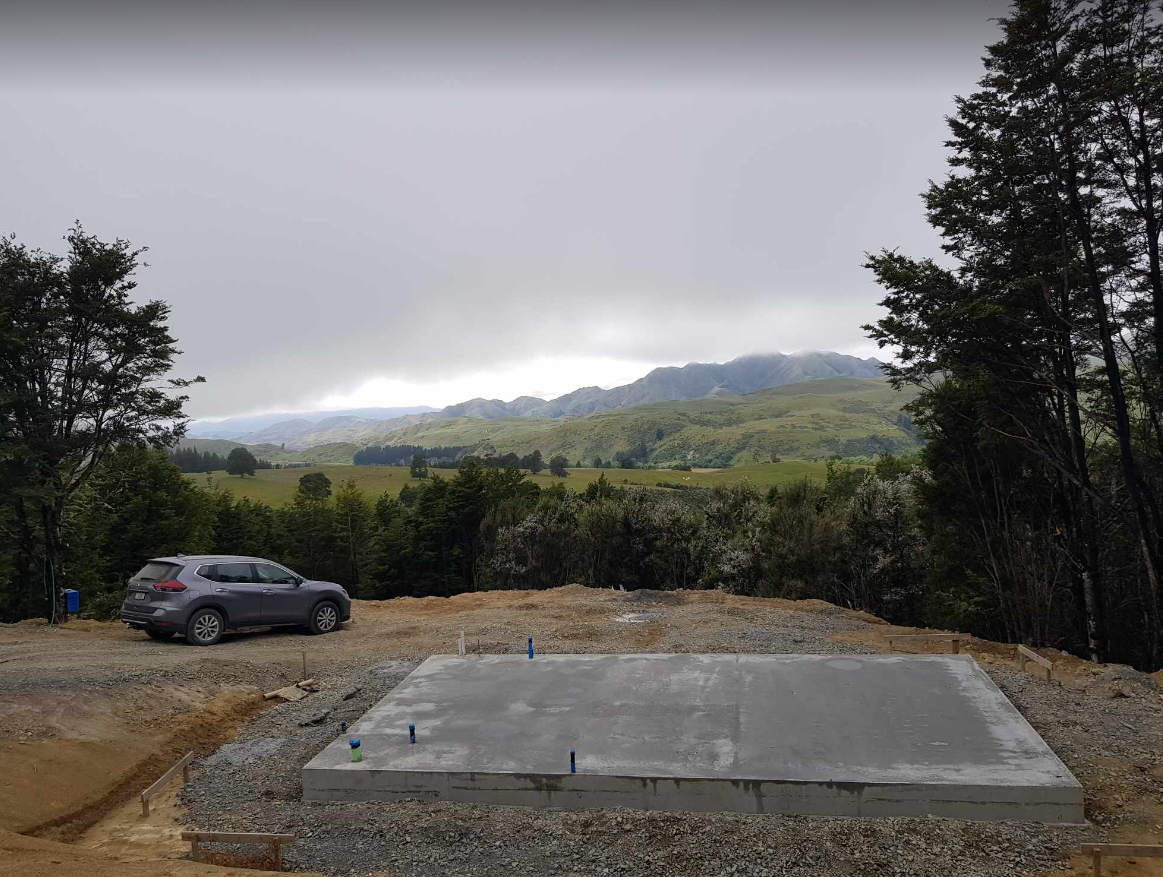Securing the Lead: The Power of First-Mover Advantage in NZ's Property Market
In the bustling world of New Zealand's property market, standing out from the crowd can mean the difference between securing your dream home and watching it slip through your fingers. This is where harnessing the power of first-mover advantage can be a game-changer for astute buyers. By being proactive and making an offer before a property becomes the subject of a bidding frenzy, you can navigate the competitive landscape with finesse and emerge victorious.
Understanding First-Mover Advantage: An In-Depth Look
The concept of first-mover advantage is a powerful tool in the world of economics and business strategy that holds immense relevance in today's real estate sector. At its core, it revolves around the strategic leverage gained by those who are quick to seize upon a fresh listing or investment opportunity. In the context of New Zealand's vibrant property market, this phenomenon manifests as making an early move - launching an offer on a property ahead of its wider public unveiling or before it becomes a target for bids from competing potential buyers.
In essence, those who embody the spirit of the first-mover seek to capitalise on opportunities before they become common knowledge. The aim is to secure a deal while others are still unaware of its existence or have yet to fully appreciate its potential value.
This isn't a strategy devoid of risk. Indeed, it requires keen market insight, careful planning, and a readiness to act decisively. However, for those who come well-prepared, embracing the first-mover advantage can open doors to unique opportunities. These individuals may find themselves in a position to secure their dream property under terms that are more favourable than would be possible in a competitive bidding situation.
To better grasp how this strategy can be employed effectively in real life scenarios, we'll delve into its various facets:
Key Aspects of First-Mover Advantage in Real Estate
Early Identification: Spotting potential properties as soon as they hit the market is crucial.
Swift Action: Once an appealing property is found, time is of the essence.
Negotiation Skills: Being prepared to negotiate terms early on can provide leverage.
Market Knowledge: A deep understanding of current market conditions and trends helps inform decisions.
A Real-Life Example: James's Journey to Home Ownership
Let's dive into a real-world example of pre-emptive bidding and explore how James managed to secure his dream home. This story illustrates how strategic moves can turn the odds in a buyer's favour, even in a competitive market.
1. The Discovery:
On a typical Wednesday evening, James was browsing through a property website as part of his daily ritual. Suddenly, a particular listing caught his eye - a house that seemed to tick all his boxes. With an air of excitement, he immediately arranged for a private viewing on Thursday, two days before the first open home which scheduled for Saturday.
2. The Private Viewing:
As it happened, another family had also arranged for a private viewing at the same time. Undeterred by this, James meticulously inspected the property to ensure it was in excellent shape and met all his needs. Satisfied with what he saw, he decided to engage the real estate agent with the crucial question:
"What do you think they would accept for this property?"
The agent could have responded in several ways: stating it was too early to tell, giving an approximate figure, declining to comment, or providing a specific value. In this instance, the agent gave a very specific figure - $45K less than what James had personally valued the property at. With that, the price level had been set, and James knew that if he offered that value it would likely be accepted as the value had to have had a genesis in a conversation that the Real Estate Agent has undertaken with the Vendors.
3. The Decision:
After another quick but thorough look around the house, James informed the Agent that he would call him later with an offer. That evening, he called back with an offer 1% higher than what the agent had suggested the Vendor would accept. This was done to make the offer seem better than they expected, to increase the likelihood of it being accepted quickly.
4. The Offer and Acceptance:
The agent promptly sent through the Sale & Purchase (S&P) agreement. After entering standard conditions such as Building Inspection, Solicitor Due Diligence, and Finance Approval (15 days) clauses, James submitted it. At this point the Real Estate Agent informed James that the other party who had viewed the property was interested in making an offer on the property, and that it would turn into a Multi Offer Process. Undeterred by this James put a time limit on the offer of before close of business Friday to ensure that he would be able to know either way if the offer was accepted or not, before the weekend. As the offer was in and had a timeline that was relatively short, the other Couple pulled out before formally offering, as they were unable to do their further personal inspections and checks in time, so the multi offer process fell away and James' offer was the only one presented to the Vendors.
By Friday afternoon - the day after his viewing - James received a call from the Agent. The Vendors had reviewed and accepted his offer, without returning a negotiated figure. Just like that, James was the sole person in due diligence phase before the first open home even took place, at a favourable price to him and his family.
5. The Open Home:
That Saturday turned out to be a busy day for the property, with 35 groups visiting during the open home. Sunday saw another 28 groups expressing interest. Among these, nine parties were so impressed they wanted to put in an offer of their own according to the Real Estate Agent. However, legally, all visitors had to be informed of the Conditional Offer than had been accepted already on the property. They were free to submit backup offers, but James had clearly secured a strong position.
There were a lot of extremely disappointed people at the open home, and the property did receive multiple backup offers, all of which were higher than the accepted amount from James' offer.
6. The Final Step:
The due diligence period passed without any issues, and James and his family successfully purchased the home.
In this competitive property market, it's crucial to act quickly and confidently when you find a property that matches your needs and expectations. As demonstrated by James' experience, strategic planning and prompt decision-making can make all the difference between securing an ideal property or missing out on it.
7. How Was this Possible:
By having a strong understanding of the local market, and what a specific property of a particular caliber and condition would likely sell for, this gave a point for price benchmarking. If the Agent had came back stating "A property like this should sell easily for $____ after three weeks of marketing" then it would have gone differently. As the Real Estate Agent seemingly was wanting to get the deal completed as soon as possible, and didn't advise his clients to wait until after the open homes, which were only days later, this created a situation in which the deal was able to be set, below market value, before anyone else could be involved. This situation shows that by distilling the process into one in which it is yourself versus the Vendor, instead of yourself versus 20 other groups, versus the vendor - the odds of you receiving a favourable outcome are higher, and you also waste less time overall. Given this process can be rinsed and repeated on all properties that you are interested in, and you only have to invest in the due diligence steps if you achieve acceptance on your conditional offer, it means that when you do get accepted it can be advantageous.
From a Vendor perspective this shows the value of trying to complete the full sales campaign. In this example if the Vendors had waiting 48 more hours they potentially could have had a Multi-offer scenario involving more than 10 groups of people. This may have driven the price up significantly given the backup offers were much better than the accepted offer from James. This particular scenario with James occurred because of decisive action, but also the poor Advice that was given to the Vendors by the Real Estate agent.
Leveraging Pre-Emptive Bidding in Seller’s Markets
In seller's markets where demand outstrips supply, properties can attract multiple prospective buyers almost instantaneously upon listing. In such high-pressure environments, pre-emptive bidding emerges as a potent tool for buyers willing to demonstrate serious intent.
When you engage in pre-emptive bidding, you're not only expressing determination but also exuding confidence and commitment to proceed with haste. Sellers often find such propositions appealing as they suggest certainty and expediency – two highly valued aspects during property transactions.
Demonstrating Serious Intent with Pre-Emptive Bidding
It's essential to distinguish yourself as a proactive and serious buyer. By making an early offer, you can effectively communicate your genuine interest and readiness to purchase. This tactic is not just about getting ahead of the competition; it's about sending a strong message regarding your:
- Determination: Moving past casual browsing and into the realm of decisive action indicates that you're not just testing the waters. You've found your ideal property, and you're eager to take steps towards acquiring it.
- Confidence: An early bid is a clear sign of confidence in your choice. It suggests that you've done your homework, evaluated the property thoroughly, and are convinced enough to proceed without delay.
- Commitment: By putting an offer on the table promptly, you demonstrate readiness to expedite the process. This commitment underscores your seriousness about finalising the purchase swiftly.
From the seller's perspective, this proactive approach can be quite persuasive. Sellers seek assurance that their property will sell smoothly without hiccups or unforeseen complications. Your eagerness to make an early offer provides them with this much-needed certainty. Striking the perfect balance between haste and hesitation is crucial here. It's all about finding that sweet spot where your readiness to make an offer coincides with the seller's preparedness to sell. This alignment could be the key that unlocks a successful property transaction for both parties involved.
So next time you come across a potential dream home, consider making an early offer. It could very well give you an edge over other buyers in this bustling market, propelling you towards securing your ideal property in New Zealand.
The Strategy Behind Successful First-Moving
To capitalize on first-mover advantage effectively requires agility and preparedness on your part:
- Financial Readiness: Having funds at hand or pre-approved financing signals sellers that you mean business.
- Offer Appeal: Understand what makes an offer compelling – not just in monetary terms but also in terms of conditions and settlement dates.
- Due Diligence: Swift action shouldn’t come at the cost of thoroughness; ensure you have all necessary checks completed promptly.
These elements combined allow you to steer clear of potential bidding wars which not only inflate purchase prices but also add unnecessary stress.
The journey through New Zealand’s property market is paved with opportunities for those who are ready to take decisive action. By embracing first-mover advantage strategies like pre-emptive bidding and demonstrating serious intent, you can rise above typical market challenges and secure properties that align perfectly with your needs – all while potentially saving significantly on costs.
Choosing this path requires confidence in one’s valuation skills and readiness to act without hesitation when opportunities arise. Embody these principles, and you may well find yourself holding keys to a new home before others have even stepped through the door for a viewing.





